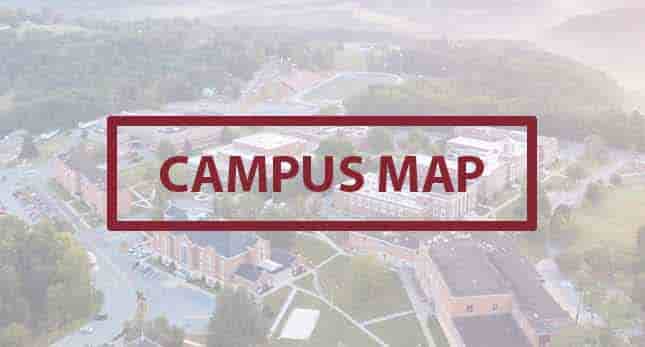Master of Arts in Teaching
The Master of Arts in Teaching Program is a 36 hour program that provides the professional education courses and clinical experiences, including student teaching, necessary to prepare individuals for teaching in a specific content area in grades PreK-Adult, 5-Adult or 9-Adult. This program is not designed to offer licensure in elementary, special education or early childhood education.
A transcript analysis will be required to identify any additional undergraduate content that may need to be completed in order to meet the requirements for the Master’s degree and licensure in the secondary content specialization areas offered through Concord University as defined in WV Policy 5100- 6.3.2 Standards for Subject-Area Content in Teacher Preparation Programs. For more information please review the MAT Policy, Procedures & Clinical Experience Handbook.
*Currently, the flat tuition rate for the Master of Arts in Teaching Program is $15,840. This includes all tuition and fees.
Master of Arts in Teaching concentrations:
- Art PreK-Adult
- Biological Sciences 9-Adult — STEM FELLOWSHIP ELIGIBLE
- Business Education Comprehensive 5-Adult
- Chemistry 9-Adult — STEM FELLOWSHIP ELIGIBLE
- English 5-Adult
- General Science 5-Adult
- Math 5-Adult — STEM FELLOWSHIP ELIGIBLE
- Music PreK-Adult
- Social Studies 5-Adult
- Wellness PreK-Adult
To be conditionally admitted, and to enroll in up to 9 hours of coursework:
A candidate may apply to the MAT program and take nine (9) credit-hours of courses before full admission requirements to the program must be met. Permission from the Director of Graduate Studies and/or the Graduate Council must also be obtained to be conditionally enrolled in nine hours of graduate courses. Failure to complete all admission requirements after nine (9) hours of coursework may result in administrative withdrawal from the courses or credit may not be applied toward graduation in the degree program.
- Complete the Application for Admission, and submit the application fee
- Submission of an official copy of your undergraduate transcript showing your degree, and the date on which it was granted, must be sent directly from your undergraduate or graduate institution to the Office of Graduate Studies. Concord alumni do not need to submit a transcript; alumni transcripts are located in the registrar’s office. However, if you have attended more than one college or university, an official transcript must be sent from that institution to the Office of Graduate Studies.
- Hold a baccalaureate degree from a regionally accredited institution with a minimum 2.50 Overall GPA
- Completion of minimum 36 hours of content related coursework at the baccalaureate level (WVDE Policy5100 6.6.b.3.B)
- If the above content course requirement is unable to be met:
- WVDE Policy 5100 6.6.k: ” Exemptions for Required Content Courses are available for a MAT program if teacher candidates have: 1) a conferred bachelor’s degree in the same content area that they are seeking professional licensure, 2) a minimum 3.0 in the specific content area, and 3) successfully completed the Praxis II content test for licensure.”
- If the above content course requirement is unable to be met:
- Transcript analysis completed by Concord University’s Department of Education Graduate Program Office
- Completion of an Educator Disposition Assessment (EDA) by an MAT Program faculty member during the first semester of coursework.
To be fully admitted, and take coursework beyond the initial 9-hours:
- Provide 2 letters recommending admission into the program. At least one letter must be from a professional that is knowledgeable of your content background
- Passing scores on PRAXIS II: Subject Assessment Test(s) as specified in Policy 5100.
Prior to Student Teaching:
- Successful completion of all coursework with at least a “C” or better in all courses and a 3.0 overall GPA. All graduate students must maintain a cumulative grade point average (GPA) of 3.0 in the MAT Program.
Graduate candidates must maintain an overall GPA of 3.0 or better throughout the program. Any candidate with a GPA below 3.0 will be placed on academic probation. In order to graduate from the MAT Program an overall 3.0 GPA is required. Candidates who are placed on academic probation for two consecutive semesters will be removed from the graduate program due to academic deficiency. In addition, candidates must earn the minimum grade of “C” to successfully complete a course. All coursework must be completed within 5 years. Coursework older than 5 years may need to be repeated
For additional information regarding available course sections, CRN numbers and syllabi, please refer to the appropriate semester in the Courses Offered Listing and/or Academic Catalog.
Professional Education Core
- EDUC 510 Models of Curriculum and Instruction (3hrs)
- EDUC 520 Educational Research (3hrs).
- EDUC 530 Integrating Technology in the Teaching/Learning Process (3hrs)
- EDUC 540 Assessment & Evaluation in Education (3hrs)
Curriculum and Instruction/Pedagogy
- EDUC 505 Advanced Teaching and Learning (3hrs)
- EDUC 516 Integrated Methods in Secondary Education (3hrs) – 45-hour clinical experience in content area
- EDUC 555 Classroom Management (3hrs) – 45-hour clinical experience in content area
- RDNG 520 Reading and Writing in the Content Area (3hrs)
- SPED 501 Special Education in Contemporary Society (3hrs) – 45 hour clinical experience in special education setting
- SPED 509 Strategies for the Inclusive Environment (3hrs)
Residency Semester
- EDUC 556 Supervised/Directed Teaching (6hrs) – full time 16 week placement
Residency (Student Teaching)
Residency is a 16-week, intensive (full-day), professional experience arranged and coordinated by the Coordinator of Clinical Experiences in the Department of Education at Concord University. Residency is a full time professional experience. Teacher candidates should not enroll in extra coursework, or engage in extra-curricular activities which interfere with residency. Exceptions to this must be approved by the Coordinator of Clinical Experiences. Candidates complete residency assignments in PreK-Adult public school(s), as well as required seminars offered at the University.
Candidates apply for residency admission by the end of October during the fall semester (spring residency), or by the end of March during the Spring semester (fall residency). Applications must be submitted to the Department of Education Operation Coordinator. Candidates will be notified by letter of their eligibility. All candidates must attend a mandatory placement meeting held the semester prior to residency. All candidates are required to purchase LiveText Field Experience Module in order to successfully complete all evaluations, assessments and time-logs associated with residency.
*Note: Candidates not meeting application deadlines, and/or admission criteria will be denied residency admission and may reapply the following semester. Candidates may appeal this decision through the Director of Teacher Education.
Early Clinical Experiences
The MAT program includes three 45-hour clinical experiences to be completed in the area of licensure; one of which in an inclusive special education setting. If a student is enrolled in two courses that require a clinical experience during the same semester, they will complete 90 clinical hours (45 +45).
Candidates must submit an Early Clinical Experience Request Form to the Department of Education Operation Coordinator, by the first Friday of each semester they will be completing a clinical experience. Students must complete all required hours and assignments by the last day of class (not last day of finals week) during the clinical experience semester. Each student will be assigned a mentor which will serve as a guide throughout their experience. All MAT candidates are required to purchase LiveText Field Experience Module in order to successfully complete all evaluations, assessments and time-logs associated with their clinical experience.
Graduate candidates must apply for graduation by downloading and submitting a Graduation Application. A graduation fee of $50 must be paid to the business office, and the graduation gown is to be ordered at the Concord University bookstore. Once the business office and bookstore have signed the application for graduation, it is to be submitted to the Registrar’s Office. A graduation audit will then be completed to ensure that all requirements for graduation have been met. Graduation requirements include completion of the 36-hour program with a 3.0 GPA within five years.
The Concord University Master of Arts in Teaching Program follows the Council for the Accreditation of Educator Preparation (CAEP) Standards, which are as follows:
Standard 1. Content and Pedagogical Knowledge
Ensure that candidates develop an understanding of the critical concepts and principles of their discipline and facilitates candidates’ reflection of their personal biases to increase their understanding and practice of equity, diversity, and inclusion. The provider is intentional in the development of their curriculum and clinical experiences for candidates to demonstrate their ability to effectively work with diverse P-12 students and their families.
- 1.1 The Learner and Learning – The provider ensures candidates are able to apply their knowledge of the learner and learning at the appropriate progression levels. Evidence provided should demonstrate that candidates are able to apply critical concepts and principles of learner development (InTASC Standard 1), learning differences (InTASC Standard 2), and creating safe and supportive learning environments (InTASC Standard 3) in order to work effectively with diverse P-12 students and their families.
- 1.2 Content – The provider ensures candidates are able to apply their knowledge of content at the appropriate progression levels. Evidence provided demonstrates candidates know central concepts of their content area (InTASC Standard 4) and are able to apply the content in developing equitable and inclusive learning experiences (InTASC Standard 5) for diverse P-12 students. Outcome data can be provided from a Specialized Professional Associations (SPA) process, a state review process, or an evidence review of Standard 1.
- 1.3 Instructional Practice - The provider ensures that candidates are able to apply their knowledge of InTASC standards relating to instructional practice at the appropriate progression levels. Evidence demonstrates how candidates are able to assess (InTASC Standard 6), plan for instruction (InTASC Standard 7), and utilize a variety of instructional strategies (InTASC Standard 8) to provide equitable and inclusive learning experiences for diverse P-12 students. Providers ensure candidates model and apply national or state approved technology standards to engage and improve learning for all students.
- 1.4 Professional Responsibility – The provider ensures candidates are able to apply their knowledge of professional responsibility at the appropriate progression levels. Evidence provided should demonstrate candidates engage in professional learning, act ethically (InTASC Standard 9), take responsibility for student learning and collaborate with others (InTASC Standard 10) to work effectively with diverse P-12 students and their families.
Standard 2. Clinical Partnerships and Practice
The provider ensures effective partnerships and high-quality clinical practice are central to candidate preparation. These experiences should be designed to develop candidate’s knowledge, skills, and professional dispositions to demonstrate positive impact on diverse students’ learning and development. High quality clinical practice offers candidates experiences in different settings and modalities, as well as with diverse P-12 students, schools, families, and communities. Partners share responsibility to identify and address real problems of practice candidates experience in their engagement with P-12 students.
- 2.1 Partnerships for Clinical Preparation – Partners co-construct mutually beneficial P-12 school and community arrangements for clinical preparation and share responsibility for continuous improvement of candidate preparation.
- 2.2 Clinical Educators – Partners co-select, prepare, evaluate, and support high-quality clinical educators, both provider- and school-based, who demonstrate a positive impact on candidates’ development and diverse P-12 student learning and development.
- 2.3 Clinical Experiences – The provider works with partners to design and implement clinical experiences, utilizing various modalities, of sufficient depth, breadth, diversity, coherence, and duration to ensure candidates demonstrate their developing effectiveness and positive impact on diverse P-12 students’ learning and development as presented in Standard R1.
Standard 3. Candidate Recruitment, Progression, and Support
The provider demonstrates the quality of candidates is a continuous and purposeful focus from recruitment through completion. The provider demonstrates that development of candidate quality is the goal of educator preparation and that the EPP provides supports services (such as advising, remediation, and mentoring) in all phases of the program so candidates will be successful.
- 3.1 Recruitment – The provider presents goals and progress evidence for recruitment of high-quality candidates from a broad range of backgrounds and diverse populations that align with their mission. The provider demonstrates efforts to know and address local, state, regional, or national needs for hard-to-staff schools and shortage fields. The goals and evidence should address progress towards a candidate pool which reflects the diversity of America’s P-12 students.
- 3.2 Monitoring and Supporting Candidate Progression – The provider creates and monitors transition points from admission through completion that indicate candidates’ developing content knowledge, pedagogical knowledge, pedagogical skills, critical dispositions, professional responsibilities, and the ability to integrate technology effectively in their practice. The provider identifies a transition point at any point in the program when a cohort grade point average of 3.0 is achieved and monitors this data. The provider ensures knowledge of and progression through transition points are transparent to candidates. The provider plans and documents the need for candidate support, as identified in disaggregated data by race and ethnicity and such other categories as may be relevant for the EPP’s mission, so candidates meet milestones. The provider has a system for effectively maintaining records of candidate complaints, including complaints made to CAEP, and documents the resolution.
- 3.3 Competency at Completion – The provider ensures candidates possess academic competency to teach effectively with positive impacts on diverse P-12 student learning and development through application of content knowledge, foundational pedagogical skills, and technology integration in the field(s) where certification is sought. Multiple measures are provided and data are disaggregated and analyzed based on race, ethnicity, and such other categories as may be relevant for the EPP’s mission.
Standard 4. Program Impact
The provider demonstrates the effectiveness of its completers’ instruction on P-12 student learning and development, and completer and employer satisfaction with the relevance and effectiveness of preparation.
- 4.1 Completer Effectiveness – The provider demonstrates that program completers effectively contribute to P-12 student-learning growth, and apply in P-12 classrooms the professional knowledge, skills, and dispositions that the preparation experiences were designed to achieve. In addition, the provider includes a rationale for the data elements provided.
- 4.2 Satisfaction of Employers – The provider demonstrates employers are satisfied with the completers’ preparation for their assigned responsibilities in working with diverse P-12 students and their families
- 4.3 Satisfaction of Completers – The provider demonstrates program completers perceive their preparation as relevant to the responsibilities they encounter on the job, and their preparation was effective.
Standard 5. Quality Assurance and Continuous Improvement
The provider maintains a quality assurance system that consists of valid data from multiple measures and supports continuous improvement that is sustained and evidence-based. The system is developed and maintained with input from internal and external stakeholders. The provider uses the results of inquiry and data collection to establish priorities, enhance program elements, and highlight innovations.
- 5.1 Quality Assurance System – The provider has developed, implemented, and modified, as needed, a functioning quality assurance system that ensures a sustainable process to document operational effectiveness. The provider documents how data enter the system, how data are reported and used in decision making, and how the outcomes of those decisions inform programmatic improvement.
- 5.2 Data Quality – The provider’s quality assurance system from 5.1 relies on relevant, verifiable, representative, cumulative, and actionable measures to ensure interpretations of data are valid and consistent.
- 5.3 Stakeholder Involvement – The provider includes relevant internal (e.g., EPP administrators, faculty, staff, candidates) and external (e.g., alumni, practitioners, school and community partners, employers) stakeholders in program design, evaluation, and continuous improvement processes.
- 5.4 Continuous Improvement – The provider regularly, systematically, and continuously assesses performance against its goals and relevant standards, tracks results over time, documents modifications and/or innovations and their effects on EPP outcomes.
Standard 6. Fiscal and Administrative Capacity
The EPP has the fiscal and administrative capacity, faculty, infrastructure (facilities, equipment, and supplies) and other resources as appropriate to the scale of its operations and as necessary for the preparation of candidates to meet professional, state, and institutional standards. For EPPs whose institution is accredited by an accreditor recognized by the U.S. Secretary of Education (e.g., SACSCOC, HLC), such accreditation will be considered sufficient evidence of compliance with Standard 6. If an EPP’s institution is not accredited by an accreditor recognized by the U.S. Secretary of Education, the EPP must address each component of ST 6 in narrative supported by evidence.
- 6.1 Fiscal Resources The EPP has the fiscal capacity as appropriate to the scale of its operations. The budget for curriculum, instruction, faculty, clinical work, scholarship, etc., supports high-quality work within the EPP and its school partners for the preparation of professional educators.
- 6.2 Administrative Capacity The EPP has administrative capacity as appropriate to the scale of its operations, including leadership and authority to plan, deliver, and operate coherent programs of study so that their candidates are prepared to meet all standards. Academic calendars, catalogs, publications, grading policies, and advertising are current, accurate, and transparent.
- 6.3 Faculty Resources The EPP has professional education faculty that have earned doctorates or equivalent P-12 teaching experience that qualifies them for their assignments. The EPP provides adequate resources and opportunities for professional development of faculty, including training in the use of technology.
- 6.4 Infrastructure The EPP has adequate campus and school facilities, equipment, and supplies to support candidates in meeting standards. The infrastructure supports faculty and candidate use of information technology in instruction


